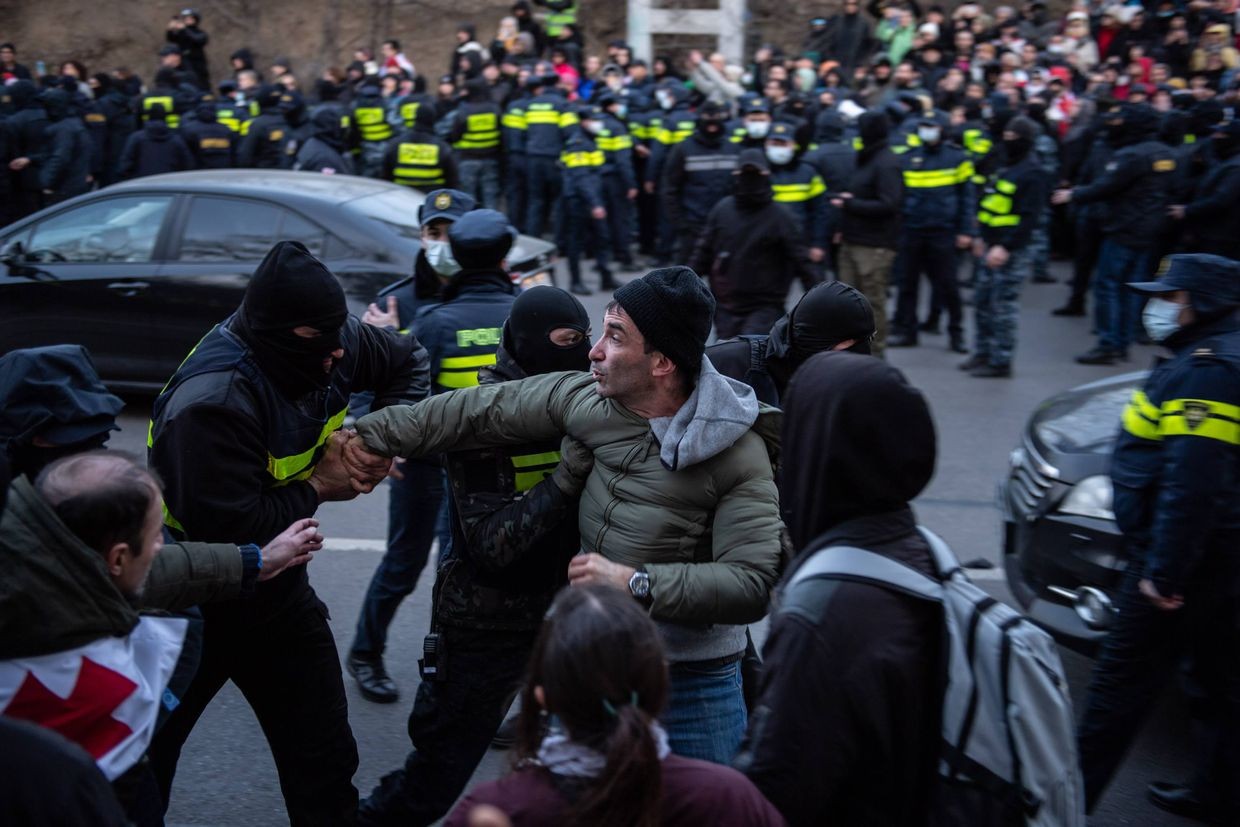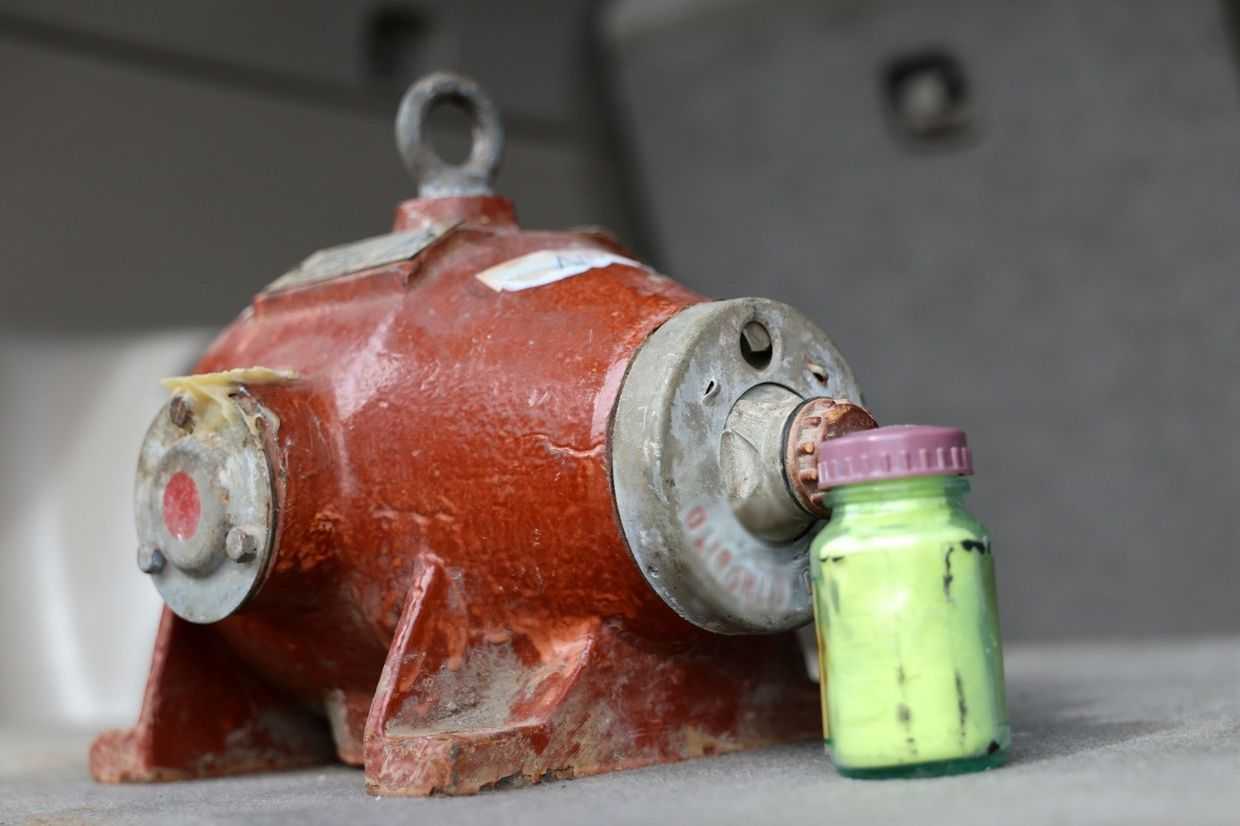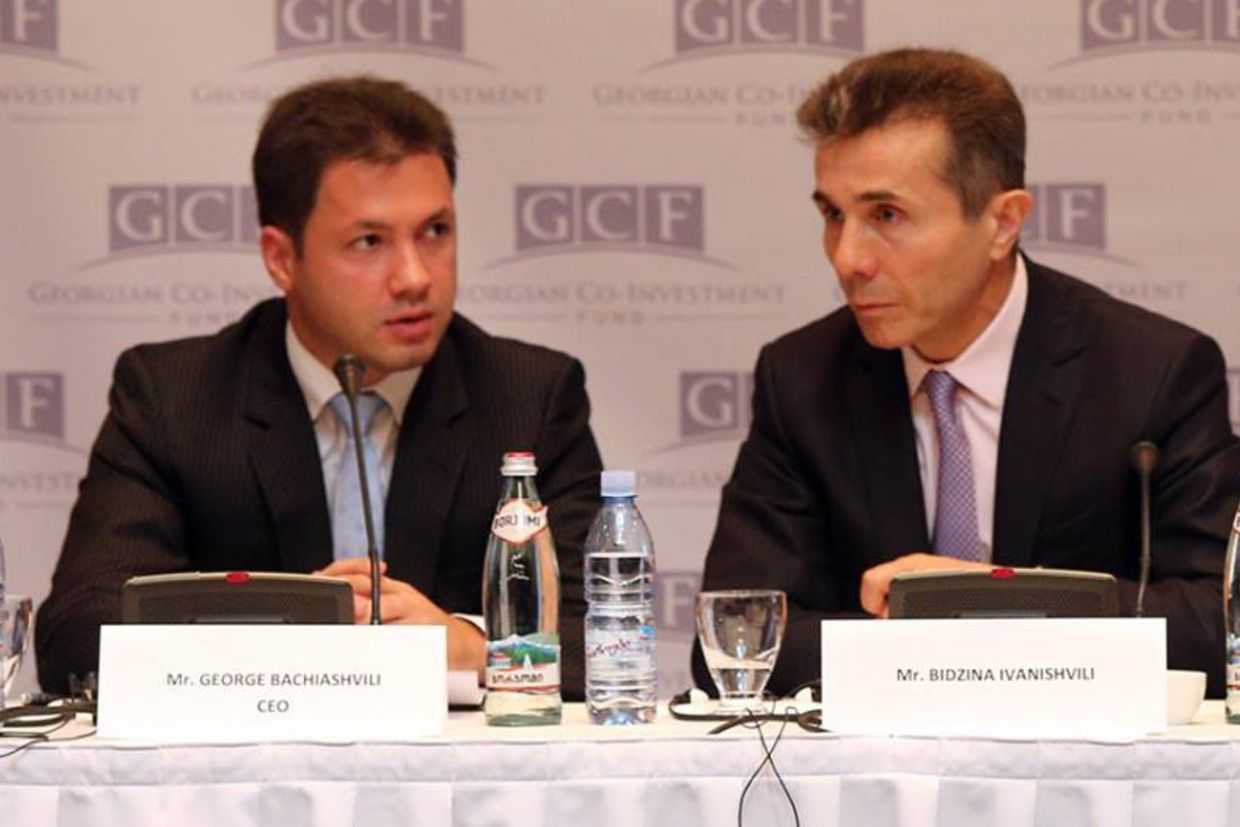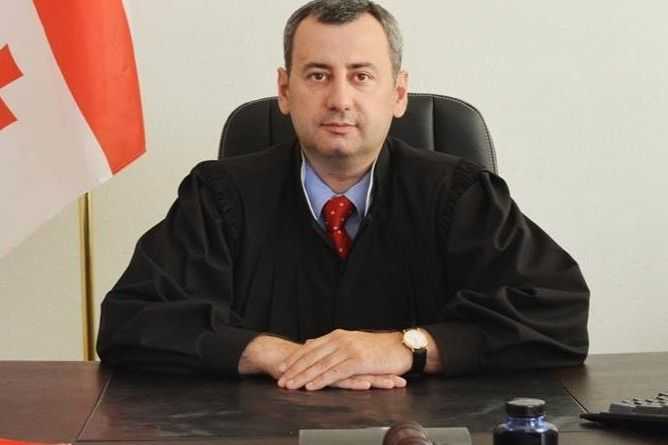
Georgian police detained 31 people during Sunday’s protest, where thousands of protesters attempted to block Tbilisi’s northern entrance, which police have attempted to violently disperse by physically and verbally assaulting the protesters.
The blockade of one of the main roads into the city on Sunday was announced as a demonstration of the pro-EU and anti-government movement’s strength and persistence, as the protest movement entered its 67th day of protests against the ruling Georgian Dream party’s decision to suspend the country’s EU membership bid.
A large number of police, including riot police, were mobilised to prevent protesters from blocking the highway in northern Tbilisi — one of the capital’s major entrances. Many officers present at the scene had their faces covered with balaclavas.

Protesters began gathering near Tbilisi Mall near the city’s entrance, after which they attempted several times to move onto the highway, but were pushed back by the police.
Several protesters were detained, including Coalition for Change leader Nika Melia and Gigi Ugulava, a politician and former Tbilisi mayor affiliated with the opposition Unity — National Movement coalition.
Before his detention, Melia shared a video on Facebook in which he is seen telling a police officer that a woman had fallen — presumably as a result of police dispersal — to which the officer replies with ‘let her stay [there]’.
Later that evening, the protesters marched to parliament 14 kilometres away from the city’s entrance, chanting ‘fire to the oligarchy’, ‘police everywhere, justice nowhere’, and ‘no justice, no peace’. Some drivers passing by the marching protesters honked their car horns in support of the protest.
The protesters were unable to fully occupy the highway, but were able to partially block it from time to time.
The police on Sunday were noticeably aggressive towards protesters and journalists compared to previous protests, with footage showing several protesters being violently beaten by the police. One video reportedly shows Zviad (Khareba) Kharazashvili, the head of the Interior Ministry’s Special Tasks Department, beating a protester.
This is how the Georgian police treat peaceful protesters.#GeorgiaProtests #TerrorinGeorgia pic.twitter.com/73t6Cu4f9L
— PUBLIKA (@Publika_ge) February 2, 2025
The Special Tasks Department is the agency responsible for the riot police.
Several media outlets have quoted the mother of a minor reportedly injured during the protest as saying that the police kicked her son in the stomach so hard that he ‘couldn’t breathe’ and ‘likely lost consciousness’. According to her, the police also robbed the minor, taking ‘absolutely everything’, including his ID, money, and phone.
According to the Tbilisi-based Ingorokva Clinic, four detained protesters, who were brought to the clinic from detention centres, have been diagnosed with concussions.
The Media Advocacy Coalition has also reported multiple instances of police obstructing journalists’ work, including through physical and verbal assaults, as well as threats. A police officer has also verbally insulted OC Media’s Givi Avaliani after he had identified himself as a journalist.
TV Pirveli has exclusive footage that shows the head of the Special Tasks Department, Zviad Kharazishvili, beating a detained citizen.#GeorgiaProtests#TerrorinGeorgia pic.twitter.com/cW56qsVuLf
— PUBLIKA (@Publika_ge) February 2, 2025
TV Pirveli’s camera operator, Niko Kokaia, was also injured after being pushed by police ‘from a height’, apparently meaning he was pushed from a wall. He was hospitalised as a result. .
The police have also been accused of verbally assaulting and mocking protesters; Mautskebeli has published a video reportedly showing riot police chief Kharazashvili swearing at demonstrators from his car.
OC Media has also witnessed a masked police officer mocking Elene Khoshtaria, the leader of opposition political party Droa, as well as insulting the leader of the opposition Strategy Aghmashenebeli party, Giorgi Vashadze, who was not present at the scene at the time.
‘Deliberately subjected to physical abuse’
On Monday morning, the Interior Ministry told OC Media that 31 people were detained on administrative charges of disobeying the police as part of yesterday’s protest and march.
The Public Defender’s Office has also issued a statement saying that their representatives visited 25 detainees, and that it was ‘alarming that nearly all of the detainees, specifically 22 individuals, reported incidents of inappropriate treatment by law enforcement officers’.
The Public Defender’s office said that ‘11 of the detainees had visible injuries, primarily to the face area’, adding that nine detainees reported mistreatment both during their detention and after being taken into a police minibus, where they were ‘deliberately subjected to physical abuse’.

The Special Investigative Service has also issued a statement, announcing that it had launched an investigation into the possible abuse of power by the police against protesters.
While protesters traditionally gather in front of parliament on Rustaveli Avenue in Tbilisi, civil society groups have been attempting to hold protests in other locations across the city. Sunday’s protest was announced following a discussion on social media, in which people cited a similar tactic employed by the current anti-government protest movement in Serbia.
In response, the government issued a decree adding ‘highways of international importance’ to the list of objects of strategic or special importance. Blocking such objects is punishable under criminal law, which the Interior Ministry also stressed in a statement ahead of protest.
On Saturday, the day before the protests, the police raided the apartments of three activists: Daitove’s two founders, Nancy Woland and Ilia Ghlonti, and activist Isako Devidze, who was later detained on charges of disobeying the police.
Daitove is a Facebook group launched during the foreign agent law protests in 2024 which is used to help people from outside of Tbilisi to participate in the protests in the city.

The leadup to the protest was also used by Georgian Dream to target independent media, with Parliamentary Speaker Shalva Papuashvili attacking Publika on Facebook, which he accused of ‘promoting the commission of a criminal offence’ by sharing news about the Sunday’s protest. The outlet said it perceives his statement as a threat.
Since Georgia’s EU U-turn, police have detained hundreds of protesters and activists, including dozens on criminal charges. According to local civil society organisations and the Public Defender’s Office, the vast majority of detainees have experienced violence at the hands of the police.











